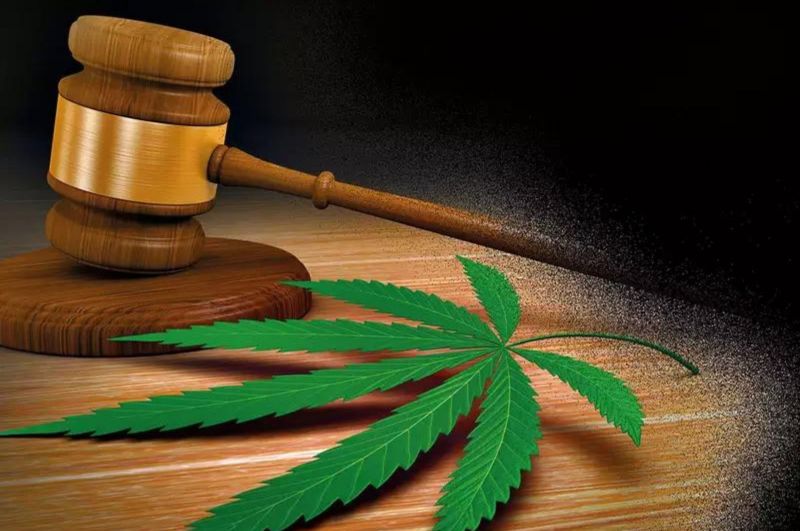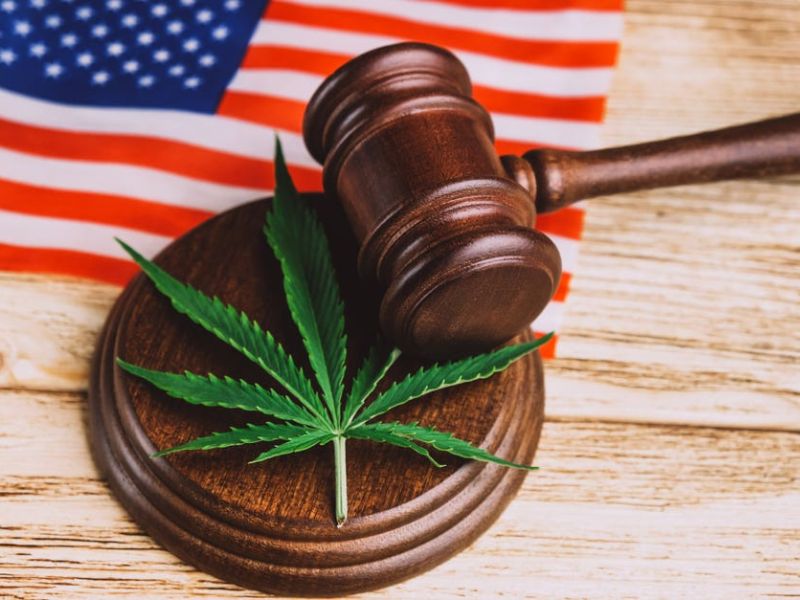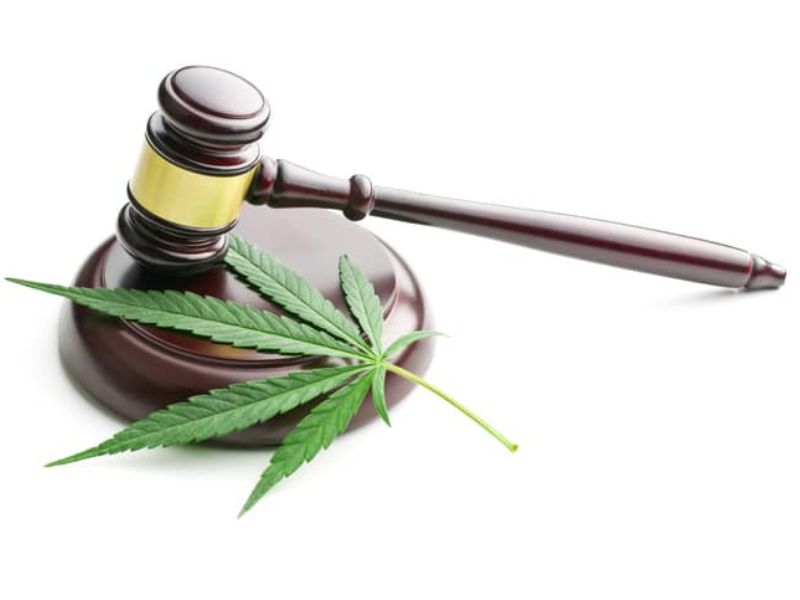
01/07/2022
Cannabis, a subject that always drew the ire of the majority, has been shedding new light since the Covid-19 pandemic. The controversial drug is driving a new course in scientific research and development, especially for the benefit of the medical discourse.
Cannabis is known by many names, including dope, weed, marijuana, and hemp. Humans have been aware of the central Asian plant and its benefits for thousands of years. The same is used to make rope and textiles. However, its popularity stems more from its use as an intoxicant and medicine.
The Covid-19 pandemic opened new doors for Cannabis that have recently been under a ban or scrutiny by many countries.
Cannabis has always been in use around the world. However, the United Nations Office on Drugs and Crime (UNODC) said in its annual World Drug Report that cannabis use is increasing with potency in terms of tetrahydrocannabinol (THC) content.
While its legalization and proper usage under medical supervision were still under development, the COVID-19 pandemic induced further medical research. It, in turn, has benefitted the pandemic situation. Several US states have legalized cannabis for non-medical purposes.
It started with Washington and Colorado legalizing it in 2012. After Uruguay legalized it in 2013, Canada legalized it in 2018. Of course, other countries have taken similar steps, but the report focused on those three.
“Cannabis legalization appears to have accelerated the upward trends in reported daily use of the drug,” according to the report by the Vienna-based UNODC. “Periods of lockdown during the COVID-19 pandemic drove increases in cannabis use… in 2020,” it stated.

Source: ThinkCivis
While the prevalence of cannabis use among teenagers “hasn’t changed much,” there has been a “pronounced increase in frequently reported use of high-potency products among young adults,” according to the report.
2020 was a watershed moment for cannabis. According to a new report, legal sales in the United States—14 states allow adult use, 36 allow medical sales—reached a record of $17.5 billion, a 46% increase from 2019.
According to a report published by BDSA, a cannabis sales data platform, most sales growth came from adult-use markets. Mature markets like Colorado saw increased sales by 26% to $2.2 billion, and Oregon, which saw sales reach $1.1 billion, witnessed a 29% increase over 2019.
Cannabis is the most widely used illicit drug under international control worldwide. In 2017, it was estimated that 188 million adults (range 164219 million) used it worldwide, accounting for 3.8% of the global adult population. Its use is more prevalent in North America and high-income countries in Europe and Oceania. In addition, its use has grown in some low and middle-income countries, but it is still uncommon in Asia.
Cannabis’ inclusion in the same schedules of international drug control treaties as heroin, cocaine, and amphetamines has been contentious. Also, public campaigns to legalize its use have been ongoing since the late 1960s.
The path to adult-use legalization in the United States began with citizen-initiated referendums that legalized the medical use of cannabis. It was initially for serious illnesses such as cancer, but gradually under liberal regulations that allowed the supply of cannabis by retail, commercial cannabis “dispensaries.”
These changes reduced public opposition to adult cannabis use in 2012. It started with the passage of referendums in two states with some of the most liberal medical cannabis laws, Colorado and Washington State.
As evidenced by citizen-initiated referendums, a combination of arguments drew public support for recreational cannabis legalization in the United States.
~The first is that cannabis use is widespread among young adults and is less harmful than alcohol, tobacco, and opioids.
~The second is that criminalizing cannabis use causes more harm than cannabis use because some users are arrested and have criminal records.
~The third point is that these criminal laws disproportionately affect cannabis users from minority groups, such as African Americans and Latinos.
~The fourth point is that adult-use legalization is a better social policy than criminalization because:
1. it eliminates the illicit
2. it allows cannabis use to be regulated to limit adolescent access and protect adult cannabis consumers
Sales increased in many legal cannabis states where dispensaries were deemed “essential” businesses. Cannabis businesses have been designated in California, Colorado, Illinois, Maryland, Michigan, New Jersey, New Mexico, New York, Ohio, Oregon, and Washington.

Source: CK Public Health
Cities in the United States that have taken similar stances include Chicago, Denver, and San Francisco. In addition, stocks in cannabis companies rose in response to reports of increased demand. Some dispensaries were forced to lay off workers or reduce working hours. However, the decision to remain open in California drew criticism from those who believed a crowd of shoppers posed a risk of virus transmission.
On March 23, 2020, sales in Denver were up 392% compared to the weekday before the stay-at-home order. After the state ordered in-person retail operations to close, a Reno delivery service saw a 400% increase in business. The decision to close retail stores or keep them open as critical infrastructure or essential medical needs vary across the United States’ legalized states.
While states having a well-established local customer base saw a boost in sales, states where marijuana sales were closely linked to tourism suffered. The markets like Las Vegas and Massachusetts were hard hit.
Governor Charlie Barker generally prohibited the sale of recreational marijuana in Massachusetts during the Covid outbreak, making Massachusetts the only state that has legalized marijuana to do so during the pandemic.
In Massachusetts, the Cannabis Control Commission halted recreational cannabis sales due to concerns about an influx of out-of-state buyers and a large increase in registrations by new medical patients, as well as to study the supply chain.
Five dispensaries and a medical cannabis patient filed a lawsuit against Governor Charlie Baker in response to the closures. The annual Hash Bash festival in Ann Arbor, Michigan, was live-streamed online. Social distancing requirements in Missouri may prevent recreational marijuana legalization campaign organizers from collecting signatures for ballot inclusion.
Researchers at the University of Miami are investigating the impact of the pandemic on the industry as of April 2020. Cannabis legalization efforts in several states in the United States have been halted.
According to Erik Altieri, executive director of the National Organization for the Reform of Marijuana Laws, “Cannabis is a safe and effective treatment on which millions of Americans rely to live productive lives while suffering from diseases and ailments. These people must have access to their medications at this time.”
According to the non-representative Global Drug Survey 2021, cannabis is the second most commonly used psychoactive substance in the world, after alcohol and before nicotine. Adolescents and young adults most commonly consume cannabis.
Conclusion
Cannabis, once regarded as a dangerous gateway drug, has gained public acceptance in recent years. Recreational consumption is now legal in an increasing number of countries.
While science might be divided on the long-term effect of Cannabis, governments and scientists should work in tandem to prevent its misuse and over-exploitation by young people.
Article by Ananya Bhattacharjee, Beverage Trade Network
TAGS:






